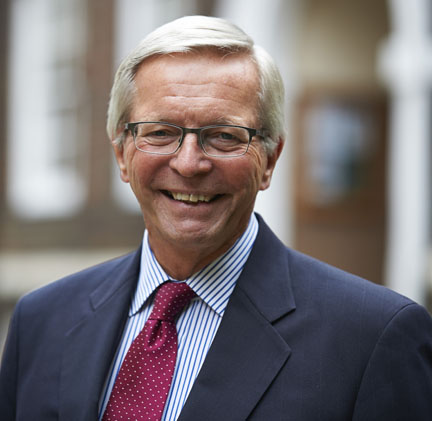Canadian arbitrator John Judge is expanding his international arbitration practice by joining Thirty Nine Essex Street LLP, a specialist advocacy chambers based in the United Kingdom.

“The reality is London remains the centre for international arbitration in the world. There’s so much more that goes on in London and through London. While Toronto has been developing, it’s at best always going to be a regional centre, whereas the bigger cases, more challenging cases often get channelled through London,” he tells Legal Feeds.
Judge has been involved in shareholder and partnership disputes, corporate and commercial transactions, banking, insolvency, insurance and reinsurance claims, civil fraud investigations and claims, and various technology disputes. He is also familiar with cross-border disputes and jurisdictional issues.
He practised at Stikeman Elliott LLP as a senior partner for 35 years before joining the Arbitration Place in January. He has been doing international arbitration work for the past 12 years, acting as an arbitrator and counsel, but says he faced challenges while doing arbitration at the firm.
“My decision to leave Stikemans was tied directly to the problem of conflicts of interest within the big law firms for people who do litigation or dispute work, and in particular for those like me who sit as an arbitrator,” he says. “The legal conflicts and the so-called business conflicts were creating issues because Stikemans is very much a transactions securities firm and they didn’t want me to take on cases that might preclude them from doing transactions at some point in the future.”
Judge says he is a big proponent of the skills of Canadian lawyers and arbitrators, and more Canadian law firms should be embracing international work.
“I’m firmly of the view that Canadian lawyers have really top skills and we’re as good as the best from the United States, the U.K., and elsewhere, and we can do this work.
“The challenge is that many of the Canadian law firms aren’t prepared to go out and do this work, and many Canadian clients (big corporations) may have some doubts about the abilities of their Canadian counsel to do the international work and they may be more inclined to go to New York or London, which I think is unnecessary,” he says.
Judge also mentions that as some of the large international law firms like Norton Rose Fulbright LLP and Dentons enter the Canadian legal marketplace, “many of the big Canadian law firms that have had strong international networks are pulling back and retrenching, and focusing on just consolidating their position in the Canadian marketplace without going out to the rest of the world where there’s a huge amount of work that can be had.”
Thirty Nine Essex Street currently has offices in London, Manchester, and Singapore. Its 119 members have expertise in alternative dispute resolution, administrative and public law, commercial law, civil liability, construction law, costs and litigation funding, international law, energy law, personal injury and clinical negligence, planning, environment and property, and regulatory and disciplinary.

 “The reality is London remains the centre for international arbitration in the world. There’s so much more that goes on in London and through London. While Toronto has been developing, it’s at best always going to be a regional centre, whereas the bigger cases, more challenging cases often get channelled through London,” he tells Legal Feeds.
“The reality is London remains the centre for international arbitration in the world. There’s so much more that goes on in London and through London. While Toronto has been developing, it’s at best always going to be a regional centre, whereas the bigger cases, more challenging cases often get channelled through London,” he tells Legal Feeds.